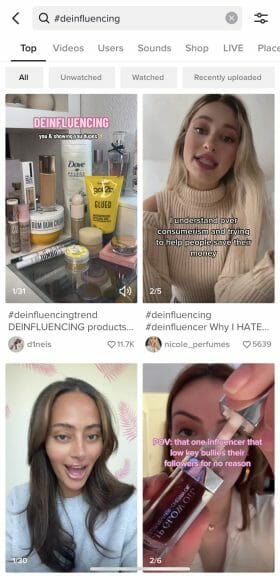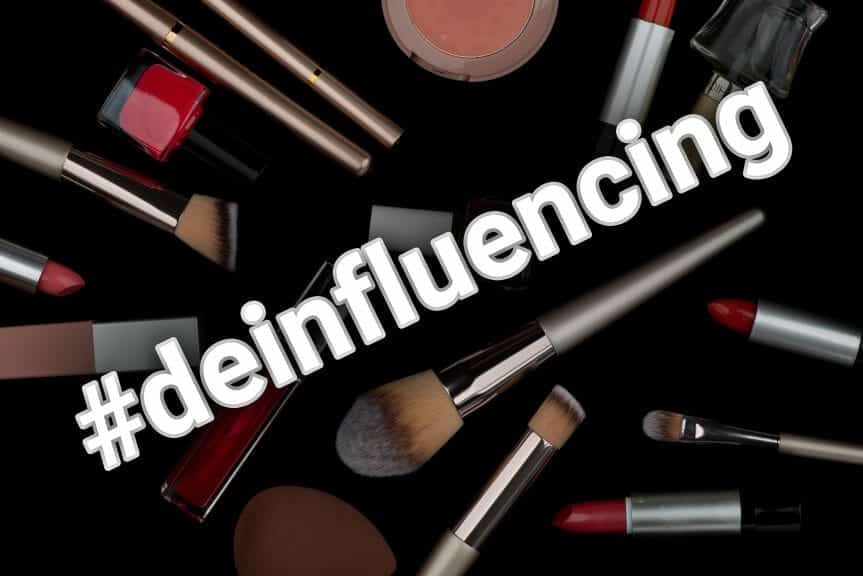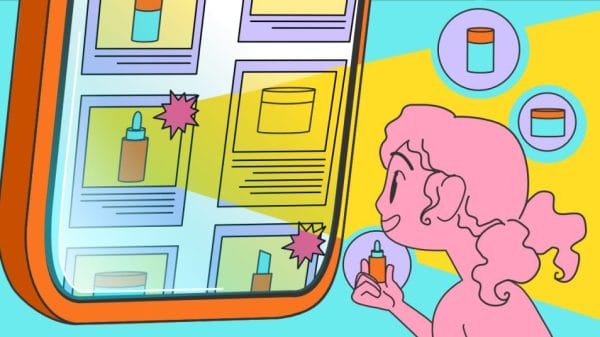Have you ever bought something because of an influencer recommendation? A beauty product recommended by your favorite beauty blogger or YouTuber, or perhaps a video game set featured by a popular game streamer. If your answer is yes, you may have fallen into the pitfalls of influencer marketing. That’s the power of influencers in this age. It was where “deinfluencing” began.
An era of influencers
We live in an era when influencers appear everywhere on social media. Even if you don’t realize it, the impact of influencers is increasing each day, and even too much. They’re dominating social media. Influencers like Kim Kardashian and Kylie Jenner used their fame to establish their businesses, earning money from their followers. Scrolling Instagram feeds and seeing tons of inserted ads and brand sponsorships daily get us used to influencer marketing.
People began to associate influencer-endorsed products with quality. What influencers introduced and wore in their posts and video seems excessively appealing. People want to be like their favorite influencers in every way, buying trendy and expensive things they don’t know much about. This unhealthy buying mindset and the associated overconsumption have caused the rise of the “deinfluencer” on TikTok.
The “deinfluencing” phenomenon

The “deinfluencing” trend first started on TikTok, with content creators (also known as deinfluencers) giving honest reviewing of popular endorsement goods and dissuading people from buying them. These are usually fashion and beauty products that have gone viral online. The hashtag #deinfluencing has received over 358 million hits on TikTok. “Deinfluencing” has now extended to Instagram and YouTube, with more and more content creators uploading videos to criticize viral goods and fight against the dominant influencer culture.
The deinfluencing phenomenon is all about anti-overconsumption and anti-materialism. Instead of telling you what to buy, deinfluencers tell you what not to buy. They share viral items they regret buying and discourage consumers from buying them using their first-hand experience. Dyson Airwrap, UGG mini boots, and various beauty products are the main things that deinfluencers criticize and dissuade buying.
What makes the deinfluencing phenomenon so popular, and why are so many people responding to this trend? Firstly, it lies in the trend’s resonance. In an age when internet Information and online shopping are so advanced, everyone has, in some way, had the experience of buying things they later regretted. Especially during the COVID lockdown period, everyone stayed home, scrolled through social media, and made purchase decisions relying on influencers’ recommendations. Hence, when deinfluencing first started on TikTok, it went viral quickly, with many people immediately feeling resonating with deinfluencers. Deinfluencer is the voice of the consumer to fight against traditional influencer culture and unnecessary consumption.
Secondly, people are tired of the excessive ads in their social media feeds. Almost every social media, like Instagram, TikTok, and YouTube, is full of brand sponsorships and influencers’ commercial posts that you don’t even know how authentic it is. According to Survey Monkey, almost three-quarters of online users (74%) think there’re too many ads on social media. People started to have a rebellious attitude toward paid influencer advertising. Therefore, deinfluencing speedily became a trend.
Is it a game changer in the age of influencers?
Is the rise of deinfluencers a game changer? Yes and no. The viral deinfluencing trend is a crackdown on consumerism and influencers, but only to a limited extent. Deinfluencers may have made people more aware of sustainability and their impulsive shopping behaviors. However, deinfluencing isn’t going to end influencer marketing, at least in a short period. In a generation where brands are keen to cooperate with influencers to gain exposure, and different influencers emerge one after another, it’s hard to eliminate the influencer market. Besides, TikTok trends change over time. No one can promise how long deinfluencing is going to last.
Deinfluencing, to a certain extent, is influencing. Deinfluencers are desperate to inform people that they shouldn’t blindly listen to the advice of influencers and do impulsive shopping. The purpose of deinfluencing is to prevent influencers from affecting your purchasing decisions. But deinfluencers have the same impact on consumers’ purchasing decisions as traditional influencers do by watching their videos and deciding what not to buy based on their opinions. This is a cycle of influencing. Deinfluencers, in some ways, are influencers.
As a consumer……

As consumers and social media users, we have to be extremely careful when dealing with tons of information online. The cliché but the most direct way to do that is don’t trust and rely too much on what we see on social media. Despite the goodwill of deinfluencers and their honest reviews on the products they bought, depending too much on the content makes us lose the sense of judgment. Ironically, if we fully believe what deinfluencers say and buy or not buy something solely because of their opinions, the deinfluencing occurrence is meaningless.














